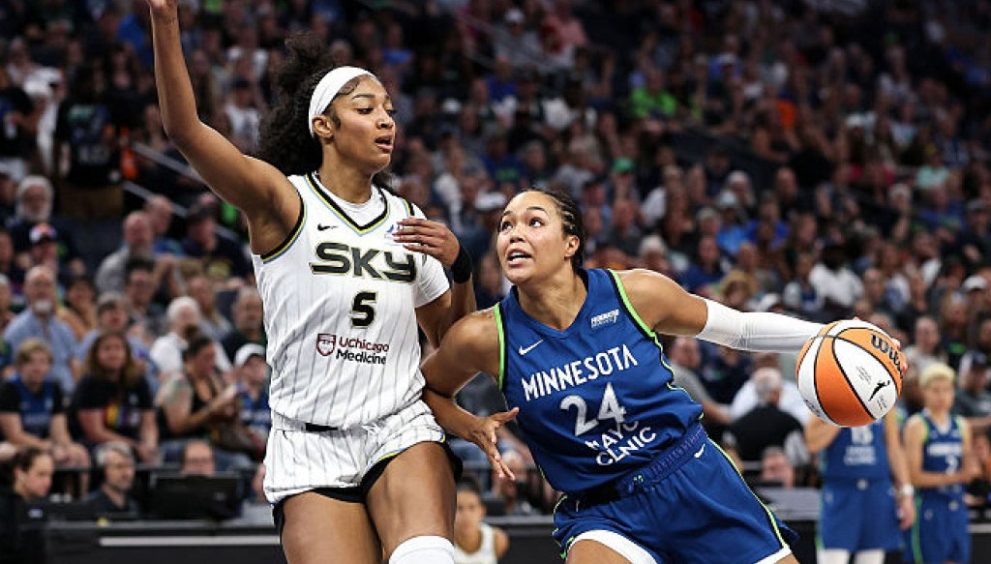WNBA All-Stars Demand Pay Equity with ‘Pay Us What You Owe Us’ Protest at 2025 All-Star Game

Indianapolis, July 19, 2025 — In a powerful display of unity and defiance, WNBA stars turned the 2025 All-Star Game into a national platform for gender pay equity. Players took the court at Gainbridge Fieldhouse wearing striking black warmup shirts reading “Pay Us What You Owe Us,” igniting a firestorm of support both in the arena and across social media. With record-breaking revenue, soaring viewership, and a looming Collective Bargaining Agreement (CBA) deadline, the message from players is clear: It’s time for fair compensation.
“Pay Us What You Owe Us” Goes Viral
Before tip-off at the sold-out arena of over 16,000 fans, All-Stars including Caitlin Clark, Napheesa Collier, A’ja Wilson, and Kelsey Plum donned protest shirts in a calculated and united push for revenue equity. Their protest followed a heated Thursday meeting with WNBA Commissioner Cathy Engelbert, which players described as a “missed opportunity.” The shirts went viral online, paired with chants of “Pay them!” from the crowd and signs like “Pay the Players” held up during Collier’s MVP interview.
“We wanted to do something united and powerful,” said Kelsey Plum, Los Angeles Sparks guard. “This is bigger than one season. It’s about our future.”
WNBA vs. NBA: The Revenue Gap Exposed
At the heart of the protest is the massive disparity in revenue sharing. While NBA players receive about 50% of league revenue, WNBA players are estimated to earn between 9.3% and 25%, depending on financial benchmarks. The average WNBA salary is around $102,000, with superstars like A’ja Wilson capped at roughly $250,000, a stark contrast to the NBA’s $1 million+ minimum salaries.
This inequity forces many WNBA athletes to seek higher-paying opportunities overseas, despite the league’s new prioritization rules discouraging that practice.
A Growing League, But Players Left Behind
The financial momentum behind the WNBA is undeniable:
- $2.2 billion media rights deal
- $750 million in expansion fees from new franchises in Cleveland, Detroit, and Philadelphia
- Franchise valuations up 180% year-over-year
- Historic viewership levels, driven in part by Caitlin Clark’s rookie season
Still, players argue that their compensation hasn’t kept pace. The league reportedly loses $50 million annually, a figure often cited by critics to justify stagnant salaries. However, WNBPA President Nneka Ogwumike counters that player value is the engine behind the league’s growth.
“We want a salary structure that grows with the business, not a fixed percentage,” said Ogwumike.
Beyond Basketball: A Gender Equity Movement
The WNBA’s protest has ignited broader conversations around gender equity in professional sports. The pay gap mirrors struggles in women’s soccer, hockey, and golf, where athletes frequently fight for equal treatment and funding.
Promising signs of change are emerging. “Unrivaled”, an offseason league created by players, offers $220,000 average salaries and equity shares — demonstrating the viability of player-first models. WNBPA leaders such as Breanna Stewart and Natasha Cloud stress that this fight isn’t just about now — it’s about securing the league’s long-term sustainability.
“We’re fighting for what we’re worth,” said Liberty guard Natasha Cloud. “This is about respect and equity.”
CBA Deadline Nears: Could a Work Stoppage Loom?
The WNBPA opted out of the current CBA — originally signed in 2020 — which introduced improvements like maternity leave but failed to address the league’s financial growth. The agreement expires in October 2025, and players have outlined demands including:
- Higher base salaries
- More generous family planning benefits
- Protected rookie contracts
- A restructured salary cap
With free agency approaching and expansion plans aiming for 18 teams by 2030, tensions are high. Some players, including Collier and rookie phenom Angel Reese, have hinted at a potential strike — which would be the WNBA’s first since 1999 — if no deal is reached. The Stakes Are Higher Than Ever
Commissioner Engelbert described current negotiations as “constructive” and expressed openness to extending the October deadline. However, players remain firm.
“We’re not backing down on salaries,” said Collier. “This isn’t just a moment—it’s a movement.”
The 2025 WNBA All-Star Game was more than a showcase of elite athleticism—it was a rallying cry for justice and equal pay. As the season heads toward playoffs, the pressure is on the WNBA to respond to its players’ united front.
Follow ClickUSANews.com for the latest on the WNBA, sports equity, and breaking national headlines.













